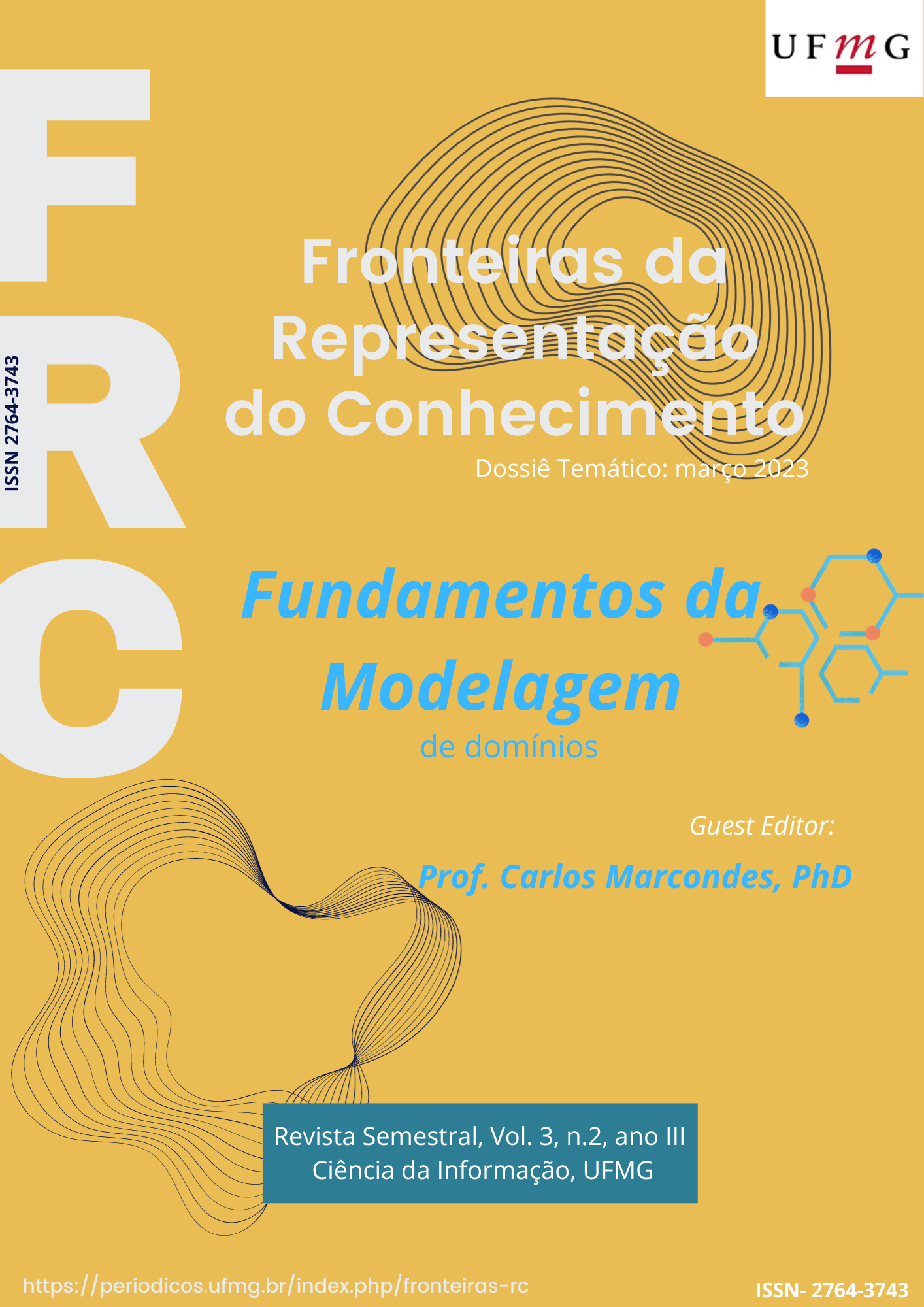Scientific domains representation and the relevance of metamodels: Dahlberg’s Systematifier
Main Article Content
Abstract
This research aims at demonstrating Systematifier as a metamodel to guide the creation of conceptual models in scientific domains. It underlines the relevance of having consistent metamodels to provide feasible integration and interoperability of information systems. It is an exploratory and descriptive research in an argumentative language so to evince the benefits of adopting such a model as the Systematifier that, in addition to highlighting an ontological
commitment regarding domain representation, it makes the representation of multiintertransdisciplinary aspects also possible, something essential in today’s scientific domains. In order to represent and retrieve information, models are developed from concepts formed about a given reality that one seeks to represent. The metamodel consists of a set of tenets that express rules and general directives for the creation of models with such a degree of generalization that it becomes independent of the specificities of any knowledge domain. Adopting a metamodel in the field of informational studies the information professional pursues consistent conceptual structures so as to reach interoperability and integration of different conceptual models. The german scientist Ingetraut Dahlberg conceived the Systematifier and applied it as a base to structure the Information Coding Classification (ICC), a classificatory model that encompasses the whole scientific knowledge. Although she does not name Systematifier as a metamodel its theoretical principles have properties that it may be considered as such.
Article Details
Section

This work is licensed under a Creative Commons Attribution 4.0 International License.
From: https://creativecommons.org/licenses/by/4.0/
You are free to:
- Share — copy and redistribute the material in any medium or format
- Adapt — remix, transform, and build upon the material
- for any purpose, even commercially.
- The licensor cannot revoke these freedoms as long as you follow the license terms.
Under the following terms:
-
Attribution — You must give appropriate credit, provide a link to the license, and indicate if changes were made. You may do so in any reasonable manner, but not in any way that suggests the licensor endorses you or your use.
- No additional restrictions — You may not apply legal terms or technological measures that legally restrict others from doing anything the license permits.
Notices:
- You do not have to comply with the license for elements of the material in the public domain or where your use is permitted by an applicable exception or limitation.
- No warranties are given. The license may not give you all of the permissions necessary for your intended use. For example, other rights such as publicity, privacy, or moral rights may limit how you use the material.


